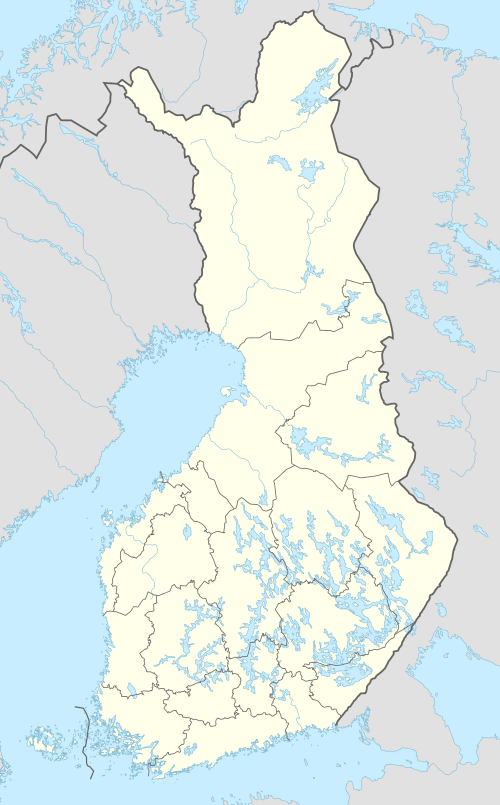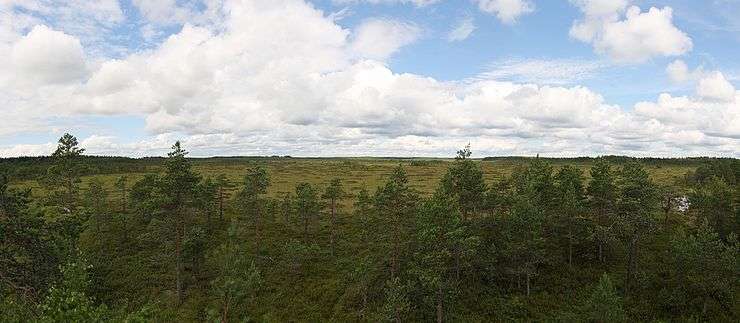Kurjenrahka National Park
Kurjenrahka National Park (Finnish: Kurjenrahkan kansallispuisto, Swedish: Kurjenrahka nationalpark) is a national park in Southwest Finland. It was established in 1998 and covers 29 square kilometres (11 sq mi). The area consists mainly of bog but also includes primeval forests, some of which have been unmanaged for over 150 years. The Eurasian lynx is a permanent resident of Kurjenrahka, but brown bears and gray wolves have also been observed and are known to reside in areas within or close to the park. Marked trails in the general area extend to over 300 km.[2]
| Kurjenrahka National Park | |
|---|---|
IUCN category II (national park) | |
 | |
 Location in Finland | |
| Location | Southwest Finland, Finland |
| Coordinates | 60°43′14″N 22°23′01″E |
| Area | 29 km2 (11 sq mi) |
| Established | 1998 |
| Visitors | 53000 (in 2015[1]) |
| Governing body | Metsähallitus |
| Website | www |
In Middle Ages the forests were jointly owned by the local parish. In early 1800s two manors bought them, but they had financially hard times and had to sell them to the state before end of the 19th century. Before selling, they logged clear all areas with easy access, but some islands in middle of mires remained unlogged.[3]


References
- "Käyntimäärät kansallispuistoittain 2015" (in Finnish). Metsähallitus. Retrieved 29 December 2016.
- "Kurjenrahka National Park". nationalparks.fi. Retrieved 29 December 2016.
- "History and Sights of Kurjenrahka National Park". nationalparks.fi. Retrieved 29 December 2016.
External links


- Outdoors.fi – Kurjenrahka National Park